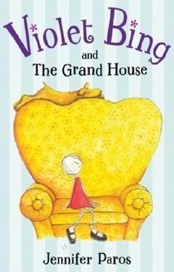Hope: Why Letting Go is Our True Super Power
by Jennifer Paros
“This new day is too dear, with its hopes and invitations, to waste a moment on the yesterdays. ”
When I was twenty-one, after graduating college I found a studio apartment and intended to find a job, but soon became increasingly frightened of looking for work. I doubted myself and was afraid to make a move. One day while bleakly constructing troubled poetry from letters I had cut out of magazines (ransom note style), I realized I was pretty far gone. The me that was not busy decoupaging an homage to my depression could see I was in trouble. My apartment was on the first floor and, at that moment, I looked out the window at the nearby shrubbery and saw a flower in full bloom. It struck me what a short distance I was from such a beautiful, thriving thing.
This observation interrupted my sinking thoughts and I started to bargain with myself. All I had to do was go and get a newspaper from the machine in front of the apartment building. That’s it – then I could come right back. This seemed manageable. Upon returning I couldn’t resist opening to the jobs section and saw that a daycare was looking for help. I called, went for an interview, walked into a large room filled with children all interested in stories and play – interested in everything really, and I was engaged, soon employed, and ultimately freed.
I left my paralysis behind. But it was my mind that had moved before my body was able. Everything that had seemed hard, complicated, painful, and unmovable one moment no longer seemed that way the next. My belief in what was wrong with me lost its sway. I let it go, not forever, but for the moment, and when I did, in came new thought and hope. If I could bottle what moved me that day, I’d have it stockpiled in my garage. But the truth is, that’s unnecessary because the movement came from me. I took my eyes off my sorrow, and they naturally found a flower. Then I gave meaning to the flower: wonderful life blooming just inches away – out there, close enough to touch. And that equaled hope.
When we write, it can take a determined decision to let go of our resistance and sit with an article, dissertation, story, or book about which we feel blocked. That’s the time when the creative process is quiet and dark, when there are no immediate rewards or discoveries. That’s the time when our intention becomes our headlamp, and all focus must be on our guiding instinct, without rushing, taking stock, or caring what anyone might think. In that moment, hope is to be found in letting go of notions of winning and losing and any story about ourselves that says we’re not up to the task. That is a true super power: our ability to let go of the thought of failure. Failure can scare us off doing things and can damn us for having tried. It stands first in the line of thoughts to let go of in reclaiming our meaning and hope.
“Where there is no hope, it is incumbent on us to invent it.”
In Man’s Search for Meaning, Viktor Frankl’s memoir of his time in Nazi concentration camps, he writes that meaning is something our lives ask each of us to define, not something we should be asking of our lives. And that self-defined meaning, that bigger mission, connects us to hope. Rather than the standard, “What is the meaning of life?”, we ask, “What is the meaning I see, believe in, and wish to convey?” The act of bringing meaning is empowering; it places us at the center of our experience, with a sense of both purpose and influence.
This is why when we write we not only tell a story, we create its meaning. We decide on the angle and its purpose – on the intentional arc. The intentional arc is our reason for telling the story. And just like our writing, our lives can have a strong intentional arc, a strong sense of meaning, or not. We either bring it or we don’t, in the moment. What is the meaning we want to highlight? Life has beauty. How do we want to express it? What in that field of our beating hearts do we want to circle, emphasize, write about, draw about, share?
Hope is really just a stance of openness, willingness, and interest chosen over fear. Fundamentally it is a willingness we can coax from ourselves when determined enough. Sometimes we think we don’t have it – that we’re locked out of what we want. But it’s not true. There is always new life blooming just inches away.
Jennifer Paros is a writer, illustrator, and author of Violet Bing and the Grand House (Viking, 2007). She lives in Seattle. Please visit her website.

